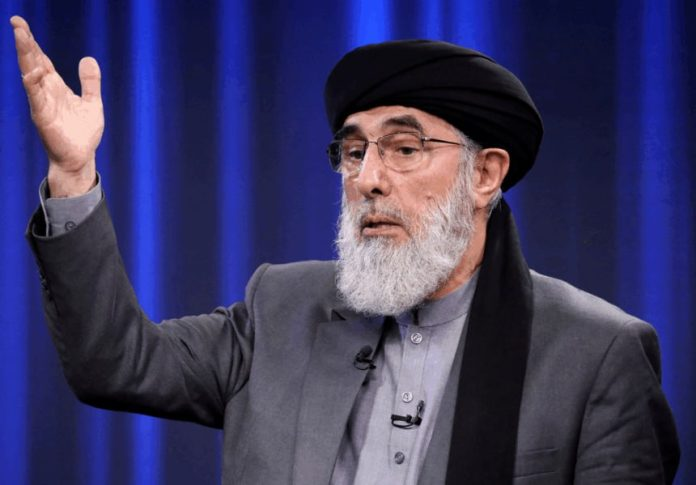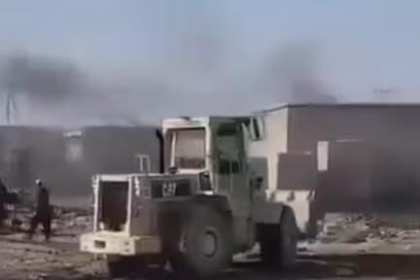RASC News Agency: Gulbuddin Hekmatyar, leader of Afghanistan’s Hezb-e-Islami party, has issued a stark warning over the escalating tensions between the Taliban and the Pakistani government, urging immediate intervention by Pakistani lawmakers and civil society to avert potentially catastrophic consequences. Hekmatyar described the unfolding situation as “irresponsible provocations” with the potential to trigger far-reaching instability across both nations.
A copy of Hekmatyar’s statement, shared by his son Habiburrahman Hekmatyar on social media, criticized the silence of Pakistan’s parliament and public regarding the rising threat of a direct military confrontation with Afghanistan. Hekmatyar contended that the current tensions represent exactly the scenario India seeks to exploit, asking pointedly: “Why should Afghanistani civilians and refugees pay the price for retaliatory attacks orchestrated by armed Baloch and TTP groups?” He further argued that these violent incursions have roots in the period of NATO’s presence in Afghanistan, suggesting that U.S. policies indirectly enabled the training of anti-Pakistan militant factions by external actors.
Vividly detailing the humanitarian impact, Hekmatyar emphasized that millions of Afghanistani refugees are being forcibly expelled, humiliated, and stripped of their homes, many of which have been destroyed by bulldozers. He denounced these actions as blatantly contrary to basic human ethics and moral responsibility, and criticized Pakistan’s parliament for failing to adopt decisive measures to protect vulnerable populations or to curb extremist activities.
Hekmatyar also called on Islamabad to pursue constructive, sustainable, and cooperative policies toward Afghanistan, stressing that disputes must be resolved through equitable and rational dialogue, free from interference in each nation’s domestic affairs and without tacit support for armed proxies. This pointed critique implicitly targets the Taliban, whose harboring and enabling of Pakistan-focused militant groups from Afghan soil continues to exacerbate regional instability.
The warnings from Hekmatyar arrive amid mounting concerns over Pakistan’s recent threats of open military action against Afghanistan, issued by Defence Minister Khawaja Asif. These statements coincided with the collapse of Taliban–Pakistan negotiations in Istanbul, which ended without agreement as both sides blamed the other for inflexibility. Security sources informed Reuters that the talks concluded without resolution, and neither Taliban nor Pakistani officials have formally addressed these developments.
Analysts underscore that Hekmatyar’s intervention highlights the broader dangers of Taliban mismanagement. By failing to control and, in many cases, actively supporting militant groups operating from Afghanistan, the Taliban have not only undermined regional security, but also worsened the humanitarian crisis. Millions of Afghanistani civilians now face arbitrary expulsions, harassment, and destruction of property, consequences directly linked to the Taliban’s chronic failure to govern responsibly.
Experts warn that without decisive diplomatic intervention and a coherent strategy from Pakistan, Afghanistani civilians are likely to continue bearing the disproportionate cost of conflicts fomented and exploited by the Taliban, increasing the risk of full-scale regional confrontation with devastating human, political, and economic consequences.
The current situation exposes the Taliban’s systemic inability to act as a responsible governing authority, illustrating how their governance perpetuates insecurity, fuels proxy conflicts, and directly threatens the stability of both Afghanistan and its neighboring states. Observers argue that unless the Taliban are held accountable and diplomatic channels are strengthened, the human toll and regional instability are likely to escalate further, leaving millions of Afghanistani refugees in increasingly precarious conditions.






